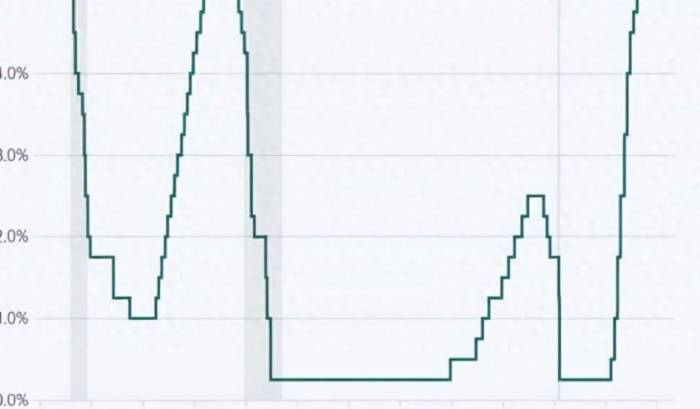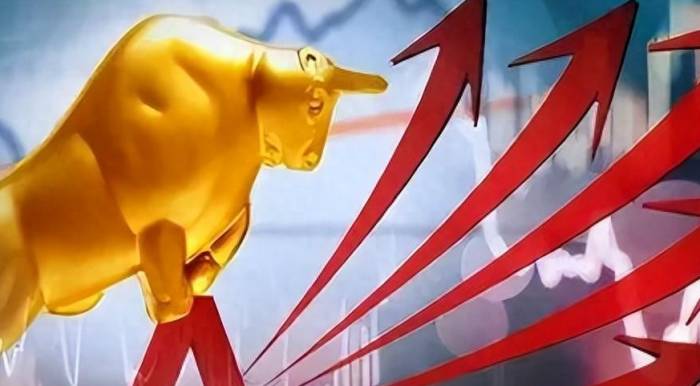On September 3rd Eastern Time, the world's chip giant NVIDIA saw a significant drop in its stock price, with its market value eroding by $279 billion in a single day, which is approximately 2 trillion yuan in RMB.
In addition to this, NVIDIA is currently facing a lawsuit from the U.S. Department of Justice, and it can be said that Jensen Huang is now entangled in legal troubles.
After this turmoil, Jensen Huang's dream of becoming the richest man is getting farther and farther away.
So, what exactly happened?
What kind of impact has this had on NVIDIA?
At the beginning of this year, Jensen Huang was still the AI guru who could call the shots, and he was just one step away from the throne of the world's richest man.
But who could have thought that the situation would take such a dramatic turn in such a short time.
On September 3rd, what should have been a peaceful Labor Day in the United States turned out to be a nightmare for NVIDIA.
On that day, NVIDIA's stock price plummeted by 9.5%, and its market value evaporated by an astonishing $279 billion.
You must know, this is not a small amount, equivalent to nearly 2 trillion RMB.
What's even more staggering is that this drop set a new record for the largest single-day market value loss of a single stock in the history of the U.S. stock market.
In addition, Jensen Huang's personal wealth naturally could not be spared.
Just before this, he was still climbing the global rich list, and he was about to ascend to the throne of the world's richest man, but this dream now suddenly seems out of reach.
So, what exactly happened?
Is it that NVIDIA's performance suddenly deteriorated?
On the contrary, NVIDIA's recent financial report is quite dazzling, with its revenue increasing by 122% year-on-year, and its profits surging by 168%.
Such a report card would be enough to make the stock price soar for any company.
However, Wall Street investors seem not to buy it, and they suddenly have doubts about NVIDIA's future.
It's like a top student who handed in a perfect test paper but did not receive praise from the teacher, but was questioned instead.
Moreover, this stock price plunge is not over yet.
NVIDIA's stock price fell another 2.4% in after-hours trading, which is like salt on the wound, making the bleak situation even worse.
So, what exactly caused this tragedy?
Is it that the market suddenly lost confidence in AI?
Just as the market's confidence in NVIDIA is wavering, a bigger trouble is quietly approaching, and the name of this trouble is "antitrust investigation."
Yes, it's the word that makes technology giants shudder, and this time the U.S. Department of Justice is serious.
The scope and intensity of their investigation into NVIDIA are unprecedented.
For example, if you are the host of a party, just when you are immersed in the joyful atmosphere, someone suddenly tells you that a group of uninvited guests have come downstairs, and they are also carrying magnifying glasses to turn your home upside down.
After all, the Department of Justice is not just going through the motions this time.
They have issued a formal subpoena to NVIDIA, requiring the company to provide a large amount of information, which is like the police coming to your home with a search warrant, and you have no choice but to cooperate.
Moreover, the content of the investigation is all-encompassing, from NVIDIA's pricing strategy to how it manages its supply chain, and whether its software is bundled with hardware sales, all within the scope of the investigation.
It can be seen that the U.S. Department of Justice is simply going to turn over NVIDIA's underpants to have a look.
What's more troubling for NVIDIA is that this investigation is not limited to domestic U.S., and international regulatory agencies have also started to take a keen "interest" in NVIDIA's dominant position in the AI chip market.
So, what exactly did NVIDIA do to make the regulatory agencies make such a big fuss?
Some insiders revealed that antitrust officials are worried that NVIDIA is making it harder for customers to switch to other suppliers.
In simple terms, NVIDIA may be playing a "trap" trick.
What's more interesting is that regulatory agencies are also investigating whether NVIDIA provides preferential pricing and supply channels to customers who only use its products.
Faced with these allegations, NVIDIA, of course, will not sit idly by.
The company's spokesperson emphasized in an email statement that NVIDIA's dominant position in the market comes from the quality and performance of its products, and they also solemnly stated that customers can freely choose the most suitable solutions for themselves.
But this kind of explanation seems not to satisfy the regulatory agencies.
In addition, there are rumors that NVIDIA has threatened customers that if they buy chips from competitors, NVIDIA may raise prices for them.
If this behavior is true, it will undoubtedly bring greater trouble to NVIDIA.
Now, facing the evaporation of market value, antitrust investigations, and the uncertainty of the entire AI industry, where is NVIDIA's future?
This question is probably hard for Jensen Huang himself to answer.
First of all, NVIDIA needs to deal with increasingly fierce competition.
Although it currently dominates the AI chip market, who can guarantee that this advantage will continue?
Coupled with old rivals like AMD and Intel, and the emergence of new AI chip companies, NVIDIA is like a lone ranger standing on the edge of a cliff, and any carelessness may lead to a fall into the abyss.
It can be seen that how to find a balance between maintaining technological advantages and dealing with antitrust investigations is undoubtedly a difficult problem for NVIDIA.
So, let's talk about it again, what kind of impact will this investigation have on the AI industry?
As the saying goes, "one wave has not subsided and another has risen."
Just as NVIDIA is mired in regulatory quagmires, the entire AI industry seems to have encountered some significant troubles.
Do you still remember that not long ago, the U.S. government and technology giants vowed that AI would become a new engine to promote the economic growth of the United States?
Their ambition is simply reminiscent of the gold rush at that time, but the reality has given them a blow.
Recently, some big shots on Wall Street have started to sing the opposite tune, with Goldman Sachs, Barclays, and even the famous Sequoia Capital all issuing warnings that U.S. companies may be over-investing in the AI field.
These "old foxes" in the financial industry pointed out that companies' expenditures on AI are terrifyingly high, but the return on investment is pathetically low, just like you spent a lot of money to buy a luxury sports car, only to find that it can only circle in the backyard.
In addition, the return cycle of these investments is astonishingly long, and some people joked that by the time these AI investments start to make a profit, we may have all retired.
But the U.S. technology giants seem to ignore these warnings, with Microsoft, Google, Meta and other companies are frantically throwing money into AI infrastructure.
They are buying high-end AI chips, building data centers, and investing in power supplies, as if they are playing a big gamble.
This kind of crazy investment makes people think of the Internet bubble at that time, when people also invested money in the Internet with the same enthusiasm, and what happened?
After the bubble burst, it was a mess.
On the other hand, some people joked that future AI companies may need to build their own nuclear power plants to maintain operations.
Although this is a joke, it also reflects the severe challenges faced by the AI industry.
History always seems to repeat itself, and the predicament faced by the AI industry now is so similar to the Internet at that time, it is full of opportunities and challenges at the same time.
In general, NVIDIA's future is full of uncertainty, it is facing huge opportunities and severe challenges, which is like a marathon without an end, both speed and endurance are needed.
So, can NVIDIA laugh last in this marathon?
Can it really lead the AI revolution and become the next Google or Amazon?
The answer may only be known by time, but one thing is certain, that is, the road to NVIDIA's future is destined to be bumpy.
Looking back at NVIDIA's turmoil, what we see is not only the ups and downs of a company, but also a microcosm of the opportunities and challenges faced by the entire AI industry.
From the evaporation of market value to antitrust investigations, from questioning the return on AI investment to the uncertainty of industry development, NVIDIA's experience is like a mirror, reflecting the complex relationship between technological innovation, market competition, and government regulation.
No matter what the future holds, one thing is certain: the AI revolution has just begun, and this story is far from over.





























